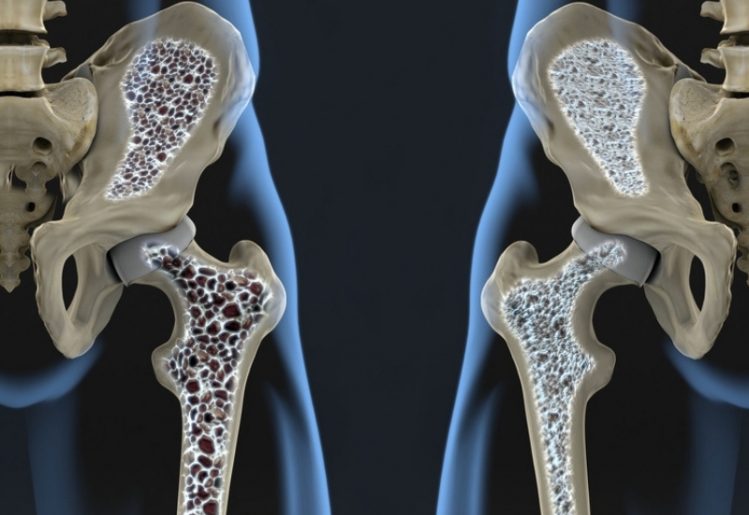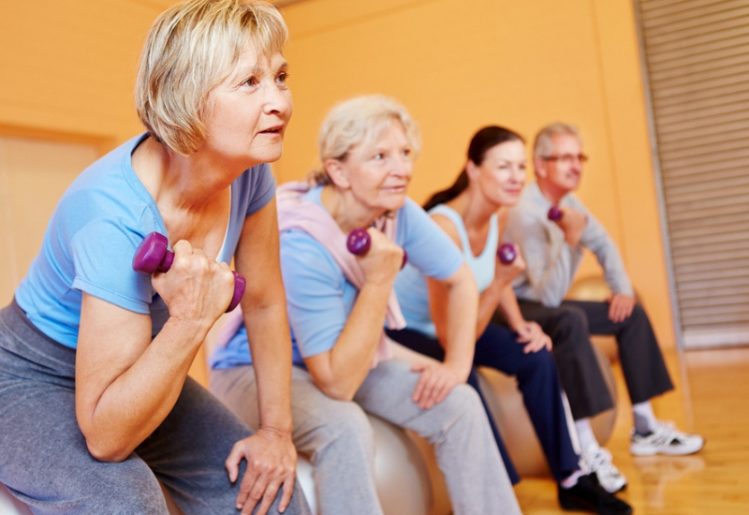Osteoporosis occurs when the rate at which bone tissue is resorbed by the body exceeds the rate at which new bone tissue is produced, resulting in reduced bone density. As a result, the bone becomes more porous and fractures more easily. In fact, frequent fractures or those caused by minor falls are usually the first signs that someone is suffering from osteoporosis. According to the International Osteoporosis Foundation, a third of women over the age of 50 suffer from the disease, while one in five men will develop it. New research confirms the link between soft drinks and osteoporosis, showing that people who regularly consume such drinks are at a higher risk of weak and brittle bones.
The Facts about Osteoporosis
In a healthy person, the body continuously forms new bone and breaks down old tissue at a steady rate, keeping the overall strength of the bones at an optimal level. A person’s bones are strongest in their twenties; from the age of 30 or 35, things start to go downhill. Bone growth slows with age, and postmenopausal women in particular are at risk of developing weakened and brittle bones.
While diet and lifestyle changes can influence the risk of developing osteoporosis, there are some risk factors that cannot be changed. For example, decreased estrogen production inhibits bone growth, which explains why post-menopausal women are at the greatest risk. In addition, Caucasians and Asians have the highest risk among ethnic groups. Genetics also seem to play a role, and having osteoporosis in the family increases the likelihood of other family members also developing bone loss. Finally, people who have suffered fractures in the past have a higher risk of developing osteoporosis in later life.
New Research Links Soft Drinks and Osteoporosis
While we already knew that the acids in soft drinks attack bone, new research has found that this is even more destructive than previously thought. The latest research suggests that consuming just two servings of soft drinks a day may increase the risk of hip fractures in post-menopausal women. The study found that teenage girls and young women who regularly drank two or more servings of soft drinks a day had reduced mineral levels in their bones. Using information from the Women’s Health Initiative, the researchers wanted to find out how soft drink consumption at a young age affects bone health later in life.
By examining data from 72,342 female subjects, the research team hoped to confirm the link between fruit juice drinks and osteoporosis. The participants, all post-menopausal women, were asked to complete a questionnaire that included questions about their dietary habits and soft drink consumption. After taking into account other factors such as ethnicity, body mass index and coffee consumption, the researchers confirmed a link between soft drink consumption and the development of osteoporosis.
Specifically, the study found that women who consumed at least 14 servings of soda per week had a 26 percent higher risk of suffering a hip fracture. The increased risk was compared with that of women who did not consume such drinks. While the study confirms that bone weakness is increased by the level of soda consumption, bone mineral density was not tested in this study. The researchers acknowledged that the study by itself does not necessarily establish a causal relationship. However, looking at the results of this study in relation to previous research on the effects of soft drinks, there appears to be a clear link between soft drink consumption and bone health. The authors of the study recommend more research on soft drinks and osteoporosis, but they also suggest that limiting consumption can only have positive effects on overall bone health.
Tips for Reducing the Risk of Osteoporosis Naturally
Fortunately, there are some steps you can take to improve bone health naturally and limit your risk of developing osteoporosis. In general, a healthier diet and a physically active lifestyle are important for keeping bones and muscles strong. The following tips offer more specific suggestions to help you get started.
Strength Training
While all types of exercise are beneficial to your health, strength training and resistance exercises build bone and muscle. If you don’t have the ability to join a gym and use free weights or weight machines, you can use your own body to build bone strength. Sit-ups, push-ups and pull-ups are great for building both strength and endurance.
Eat more Plant-based Foods
Fruits, vegetables, nuts and seeds are rich in vitamins that your body needs to maintain bone strength. Plus, these foods contain powerful antioxidants that help eliminate inflammation and fight off free radicals. The nutrients in plant-based foods are more beneficial when you eat a variety of different foods, so try to choose foods based on their coloring and eat foods from each color group.
Take a Dietary Supplement
Even if you eat more plant-based foods, you may not be getting enough of certain important vitamins. You can change this by taking a supplement specifically designed for better bones. Bone-friendly nutrients include calcium, vitamin D, vitamin C as well as vitamin K, magnesium and MSM.
Promote Better Sleep
Getting at least seven to eight hours of sleep a night is essential for physical and emotional health. It has also been found to promote bone health. The opposite is also true. One study found that people who sleep only six hours a night have a much higher risk of developing osteoporosis. If you have trouble falling asleep, it may help to limit your use of electronic devices at least an hour before bedtime, reduce your caffeine intake and use relaxation techniques before bed.


